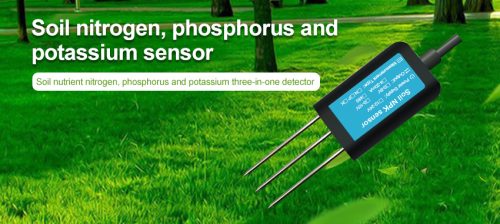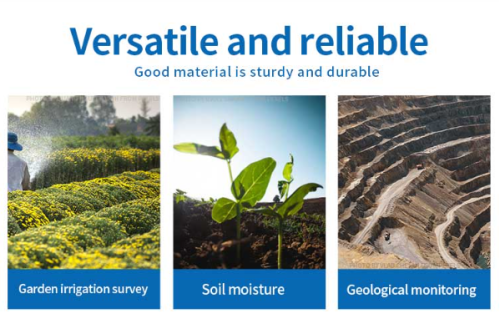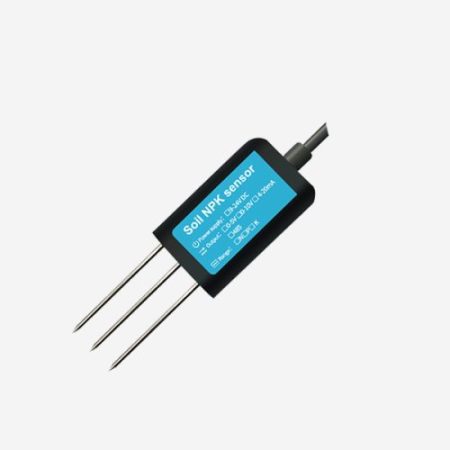Learn about NPK sensors

NPK sensors, which measure the levels of essential nutrients nitrogen (N), phosphorus (P), and potassium (K) in the soil, are revolutionizing sustainable agriculture by providing farmers with critical data to optimize fertilization practices, enhance crop productivity, and promote environmental stewardship. These sensors play a pivotal role in precision agriculture, enabling farmers to make informed decisions regarding nutrient management, soil health, and sustainable crop production. This article will delve into the significance of NPK sensors, their applications, and the transformative impact they have on modern agricultural practices.
The significance of NPK sensors
In the realm of agriculture, NPK sensor serve as essential tools for assessing soil fertility and guiding fertilization strategies. By measuring the levels of nitrogen, phosphorus, and potassium in the soil, these sensors provide farmers with valuable insights into the nutrient status of their fields, allowing for targeted and precise application of fertilizers. This not only optimizes nutrient uptake by crops but also minimizes the risk of over-fertilization, reducing the potential for nutrient runoff and environmental pollution.

The function of NPK sensors
The functionality of NPK sensors revolves around their ability to analyze soil samples and quantify the concentrations of nitrogen, phosphorus, and potassium. These sensors utilize various technologies, such as spectroscopy, electrochemical methods, or ion-selective electrodes, to accurately measure nutrient levels in the soil. The data collected by these sensors is then transmitted to monitoring systems, enabling farmers to access real-time information and make informed decisions regarding fertilization practices and nutrient management.
Benefits of NPK sensors

One of the primary benefits of NPK sensors in agriculture is their capacity to optimize fertilization practices and promote sustainable nutrient management. By providing farmers with precise information about soil nutrient levels, these sensors help to tailor fertilization strategies to the specific needs of crops, ensuring that nutrients are applied in the right amounts and at the right time.
Furthermore, NPK sensors play a crucial role in promoting precision agriculture, a modern farming approach that leverages technology to enhance productivity and resource efficiency. Through the integration of NPK sensor data with other parameters such as crop type, growth stage, and environmental conditions, farmers can implement site-specific nutrient management practices, delivering the right nutrients to the right place at the right time. This precision-based approach not only maximizes nutrient utilization by crops but also minimizes the potential for nutrient leaching, runoff, and soil degradation.
In addition to their applications in fertilization management, NPK sensors are also instrumental in soil health assessment and remediation. By monitoring the levels of nitrogen, phosphorus, and potassium in the soil, these sensors aid in identifying nutrient deficiencies or imbalances, enabling farmers to take proactive measures to improve soil fertility and address nutrient limitations. This proactive approach not only enhances crop yield but also supports the long-term sustainability of agricultural lands, ensuring that soil health is preserved for future generations.
Moreover, soil NPK sensors contribute to environmental stewardship by minimizing the environmental impact of excessive fertilizer use. By providing farmers with real-time data on soil nutrient levels, these sensors help to prevent nutrient runoff into water bodies, mitigating the risks of eutrophication and water pollution. Additionally, by promoting efficient nutrient management, NPK sensors support the conservation of natural habitats and ecosystems, aligning with the principles of responsible agricultural practices and environmental sustainability.
Conclusion
In conclusion, NPK sensor are transformative tools with diverse applications in sustainable agriculture. Through their ability to measure soil nutrient levels and provide real-time data, these sensors support efficient fertilization practices, soil health assessment, and precision nutrient management. Furthermore, they contribute to environmental conservation efforts by minimizing the environmental impact of excessive fertilizer use and promoting responsible nutrient stewardship. As the global focus on sustainable agriculture and environmental protection continues to grow, the significance of NPK sensor in revolutionizing modern farming practices and promoting sustainable crop production cannot be overstated.
